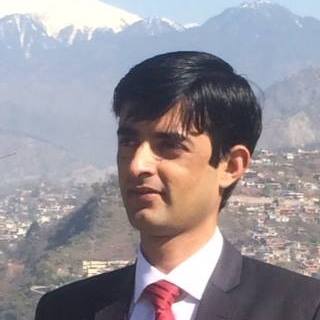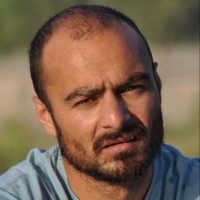Islamabad | Press release A duo of young researchers from across the Line of Control (LoC) in Jammu and Kashmir recommends the Governments on both sides to interact frequently with the youth in order to promote a shared narrative of peace, civil liberties, harmony and coexistence. Waqas Ali from Rawalakot, Azad Jammu and Kashmir and Fayaz Ahmad Dar from Srinagar, Jammu and Kashmir have come up with pioneering study outlining the socio-political aspirations of the people of the Jammu and Kashmir State. The duo has jointly been engaged with young people in Kashmir on either side of the (LoC) with since 2011. The team sought to figure out, understand and communicate the needs and concerns of the young people; facilitated the meeting of youth from across divided parts of Kashmir and provided space for them to articulate ideas about how to work together for a better future.

“If you empower young people and give them a voice, they are less likely to get entangled in a path of extremism and radicalism as has happened in the past,” enthuses Waqas, who works in Azad Jammu and Kashmir (AJK) and Gilgit-Baltistan (GB). “Engage them constructively, and you get a more stable youth that believes in political processes,” he adds.
Both, Waqas and Fayaz, working with various groups of dedicated young people representing different regions of Kashmir, have most recently produced a collaborative publication named “Vision 2020.” The document –through the articulation of a set of seven shared values—seeks to reflect the socio-economic, educational and political vision of young people across Jammu and Kashmir.
“The development of the core values and articulation of the vision of youth is potentially a ground-breaking exercise,” Fayaz—who reciprocated Waqas from other side of LoC—clarifies. “The emergence and use of the common values have enabled us to open the avenues of conversation and collaboration with people who were otherwise reluctant to get engaged in the process,” he adds. Fayaz works with young people. He has conducted extensive research and produced reports on the needs and aspirations of over 3,000 young people in the Kashmir Valley, Jammu and Ladakh.
“The need assessment frameworks were devised on the basis of an evaluation and critical analysis of the issues and complaints the young people had. Even though the situation on the ground has not changed dramatically, our work has moved to a ‘solutions’ phase – we are working with young people talking about how to build their vision for the future,” he claims. Likewise, Waqas has conducted research with over 3,000 young people, bringing their unheard voices to a larger public and has also worked to produce two needs assessment reports, one focusing on AJK and the other one based on Gilgit-Baltistan. He engaged the young people through workshops, trainings and intensive discussion – ensuring the process was inclusive of people with a range of different opinions and belonging to different backgrounds.
“We feel that people are being fed narratives that do not actually represent the voices of young people. The findings of this research have received encouraging feedback from wider circles of the civil society and I have undertaken media interviews, appearing on TV and in print media, to contribute positively in challenging the existing narratives.” Waqas elaborates. From the research, Waqas has concluded ten consensus points and then shared these with policymakers, providing feedback to the Government of AJK. Of the many suggestions that were put forward to the local government during these consultations, three were taken directly on board and included in a youth bill passed by the Parliament.
“We were invited to contribute to the manifestos of the two main parties regarding youth issues – the Pakistan People’s Party (PPP), AJK and Pakistan Tehreek-e-Insaaf (PTI), AJK. PPP accepted 100 per cent of the suggestions given by the group. We shared the youth reports with senior ministers in AJK, including the Prime Minister, Finance Minister, Deputy Speaker and the opposition leaders. We are striving to have an impact, at least at a local level,” Waqas adds.
Following the first phase of work; Waqas and Fayaz, along with Conciliation Resources, organised a meeting for a group of young people from either side of the LoC in South Africa. It was through this exchange that the young people started to identify the set of joint core values. The shared core values, conceived after a regressive consultation with youth representative groups, include dignity and trust; equality and justice; freedom and responsibility; inclusivity and participation; individual, family and community wellbeing; relationships and collaborative learning; and self-sufficiency and sustainability.
The values, and the dynamic process through which they were conceived, have the potential to act as a catalyst for the betterment of the region and the creation of a peaceful future that people aspire to see.
 |
|
Waqas Ali
Rawalakot, Azad Jammu and Kashmir |
|
 |
|
Fayaz Ahmad Dar
Srinagar, Jammu and Kashmir |




